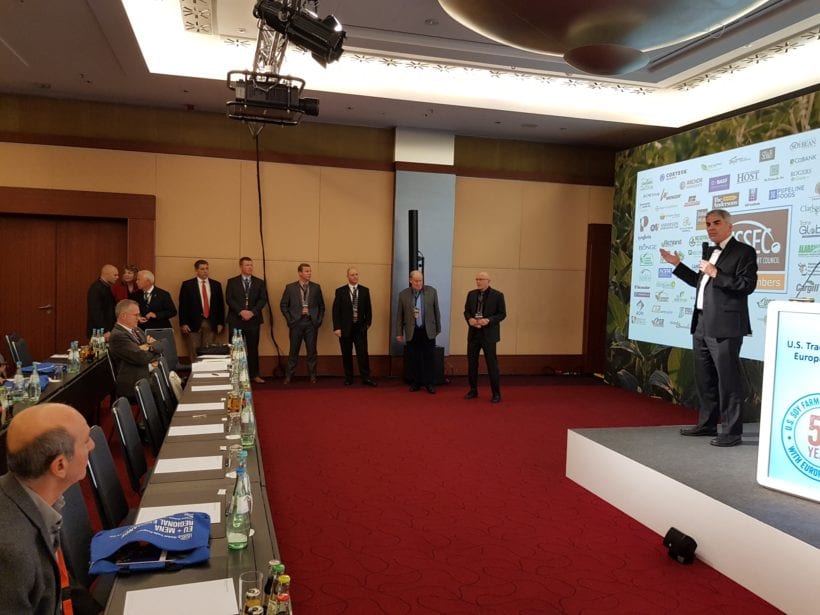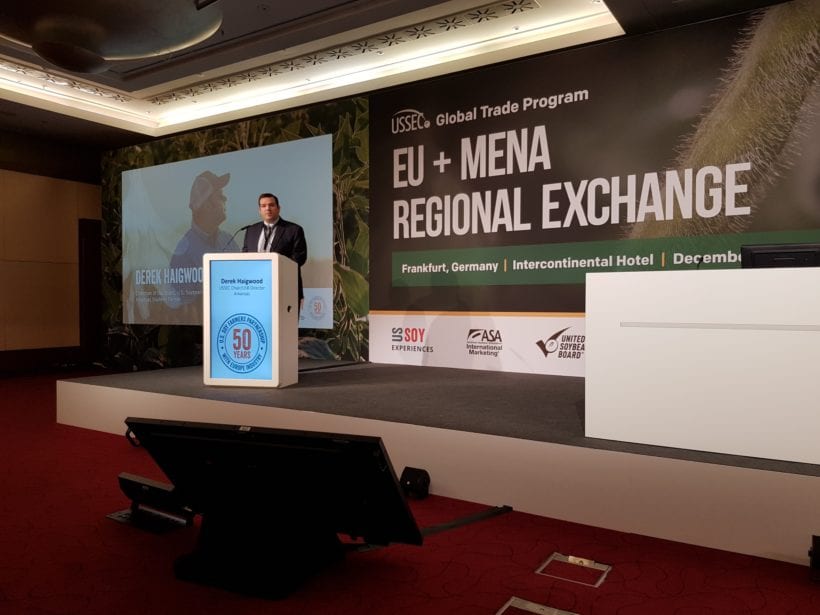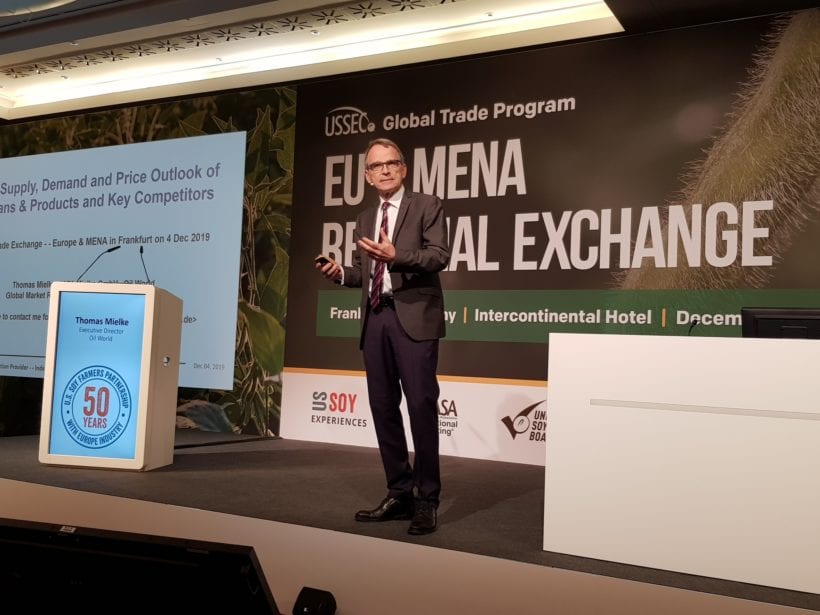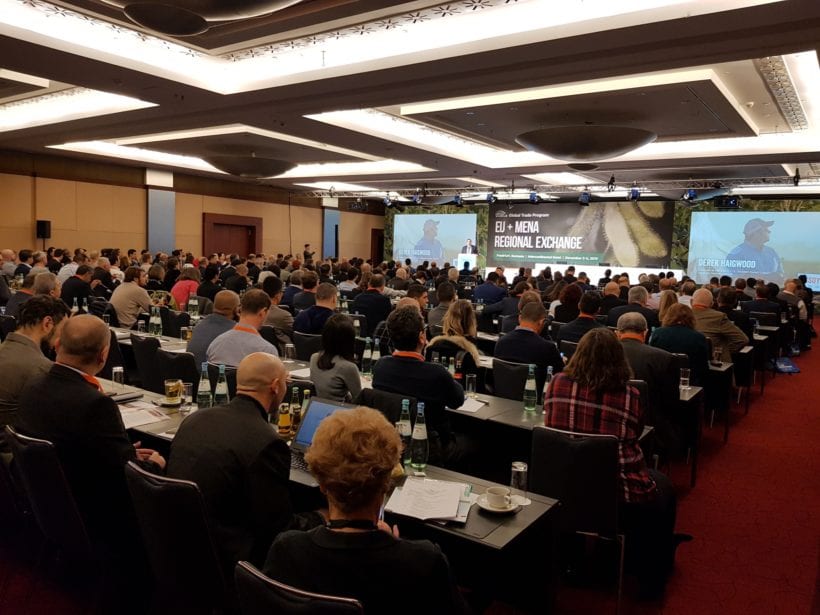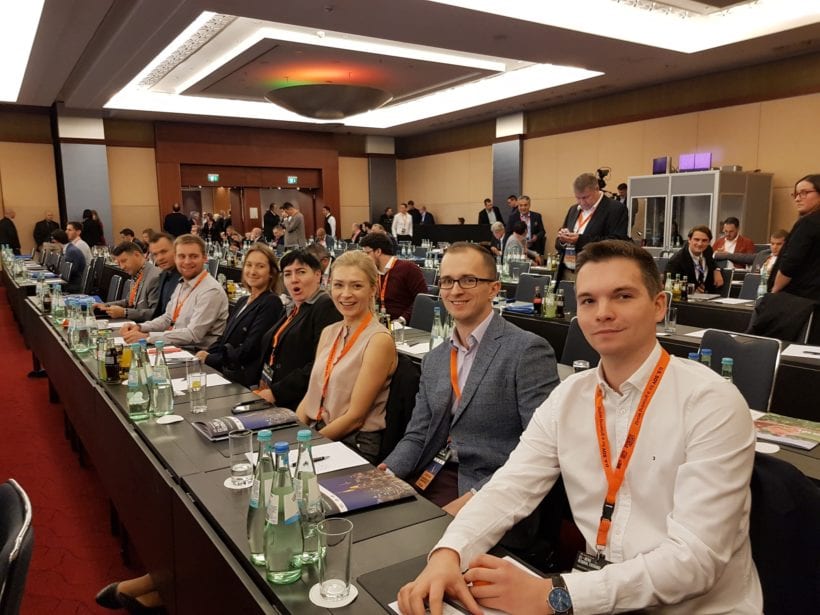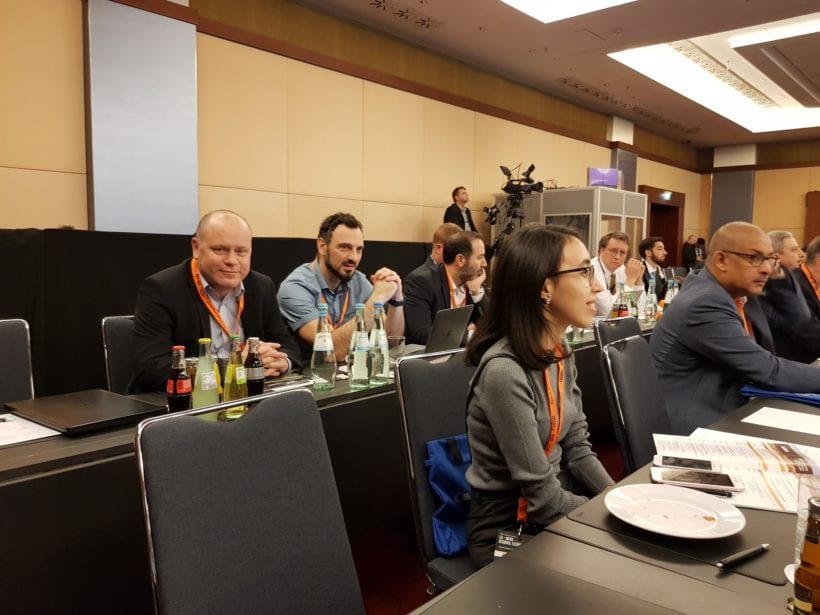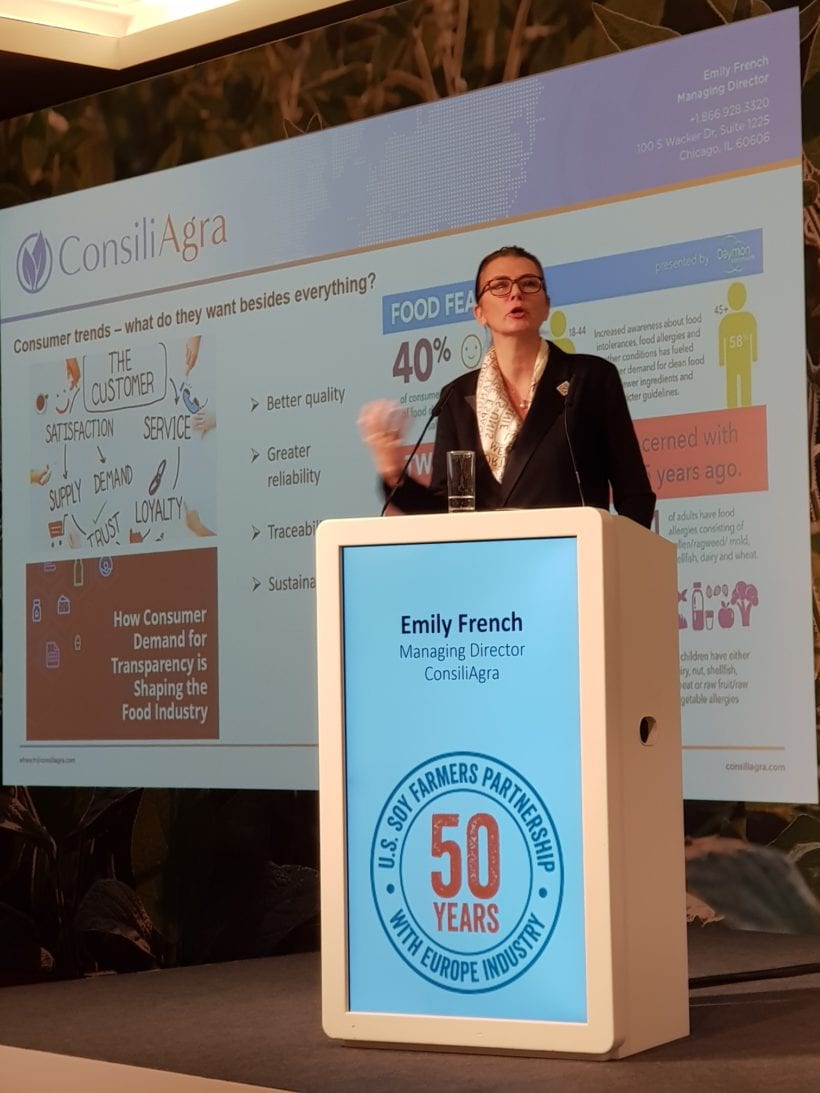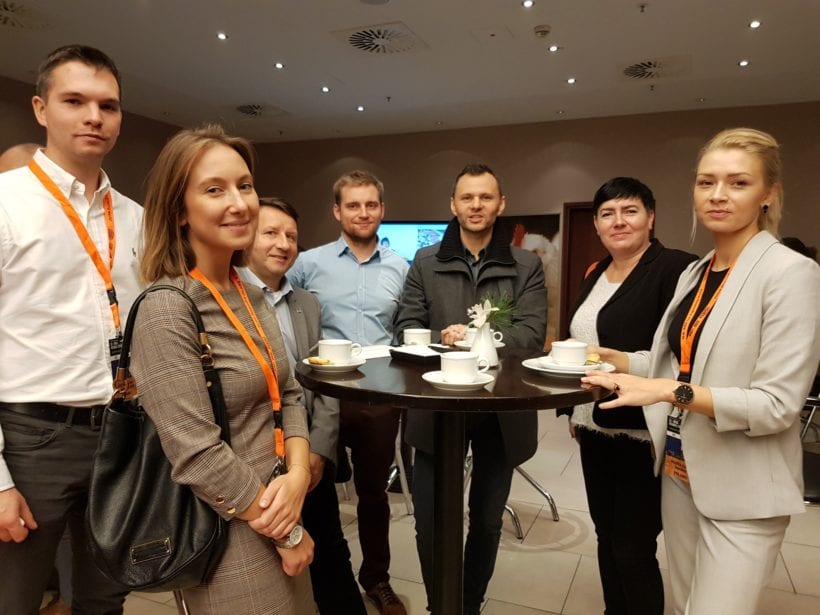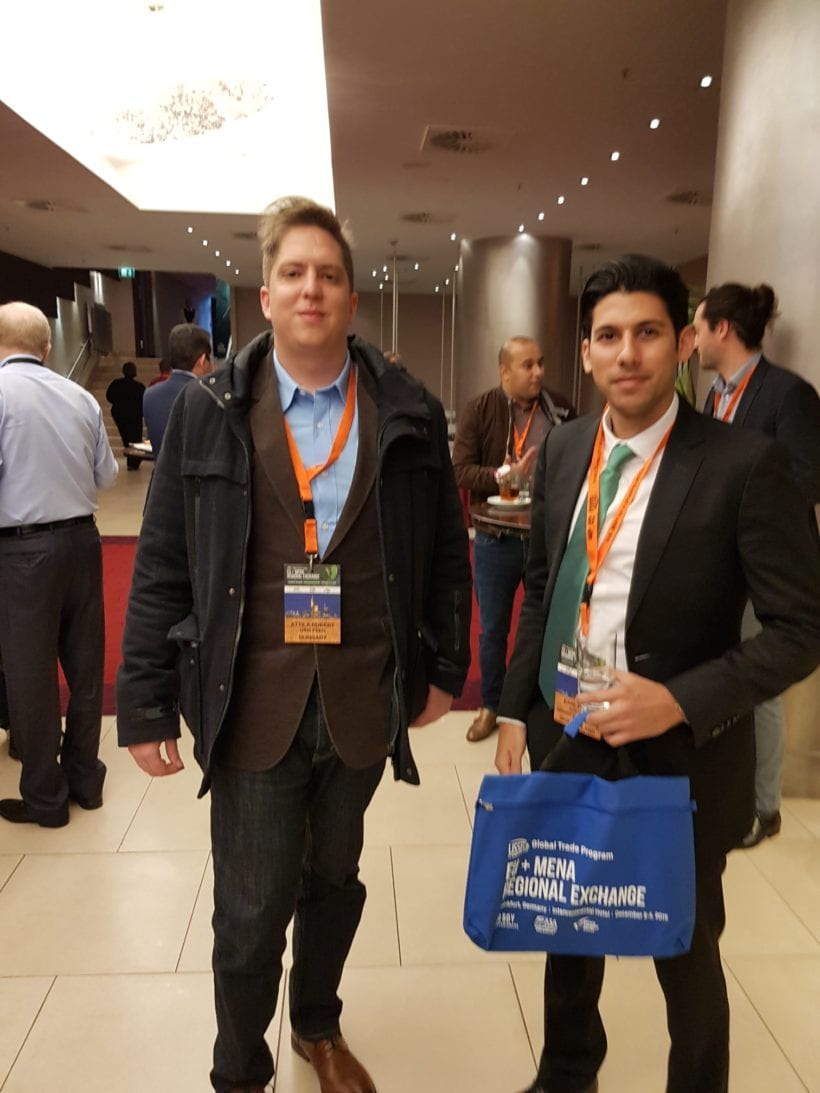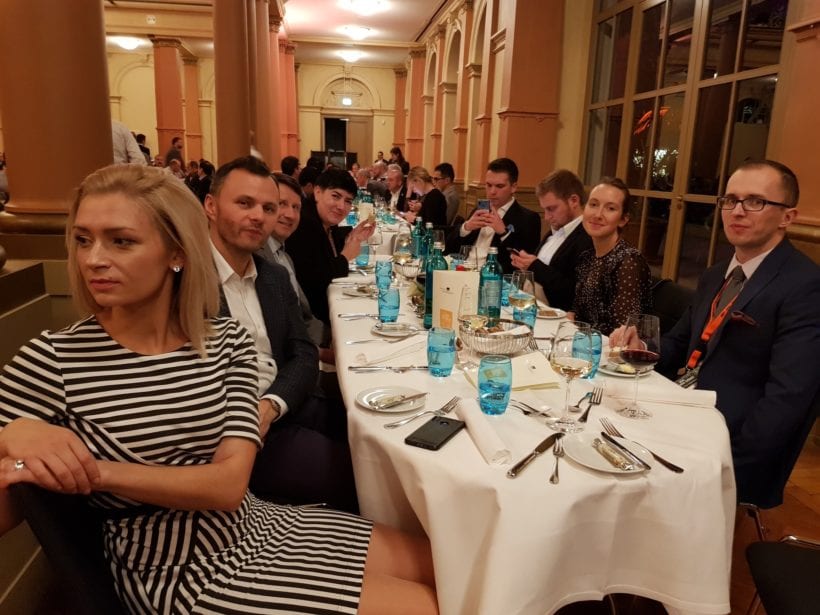Northeastern EU Buyers Leverage U.S. Soy Trade Exchange in Frankfurt to Source U.S. Soy, Meal
- Category:
- General News
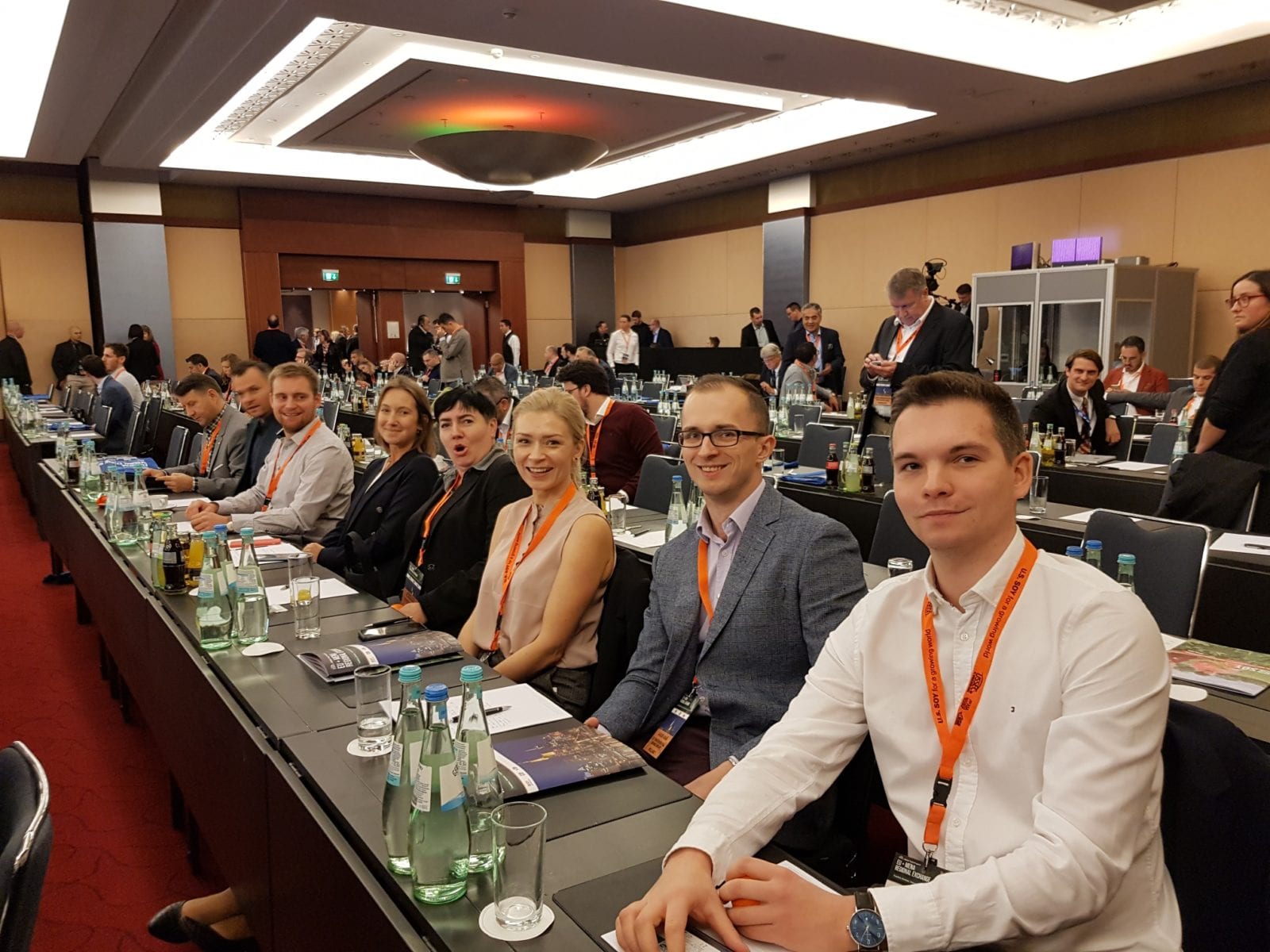
Although the date for the Regional Europe/Middle East North Africa (MENA) U.S. Soy Trade Exchange was set for the beginning of December 2019, close to the holiday season, it was eagerly attended by many customers and USSEC stakeholders. Among the more than 300 customers from Europe, the Middle East, and North Africa, there were eleven individuals from the USSEC Northeast European subregion, including Poland, Slovakia, and Hungary who skipped other local and regional conventions held at same time to attend the USSEC event in Frankfurt, Germany. The conference provided an opportunity for them to get firsthand market information about the U.S. harvest.
The northeastern European participants eagerly attended all of the presentations and panel discussions that were staged at the InterContinental - Frankfurt. Customers particularly enjoyed a presentation on the soybean market situation and outlook delivered by Mr. Mielke, CEO of the Oil World, Rabobank’s Nan-Dirk Mulder’s presentation on poultry and livestock production and marketing trends, and a talk by Emily French, ConsiliAgra, during which she explained about what would happen next in the futures markets. The northeast Europe delegation found it new and interesting to attend the MENA and Europe panel discussions focusing on soy utilization and markets, among other topics.
Many customers who had earlier attended USSEC events focused on U.S. soy utilization attended the panel “Maximizing Value of U.S. Soy in Animal Production,” moderated by USSEC consultant Dr. Gonzalo G. Mateos, UPM. The U.S. Soy Advantage was used to explain the core point of differentiation of the soy grown, processed, and offered for export in America.
Current and potential buyers had numerous opportunities to interact with the farmer leaders who attended the regional event; the growers spoke and spent time with customers from that part of the world. When it came to talking about U.S. Soy’s sustainability, the farmers’ explanations about what they do and how they practice various methods at their farms to make their production more environmentally friendly and more sustainable offered an important human perspective to the professional presentations on the subject.
“It was only now, when I heard the U.S. farmers’ presentations on who they are and how they farm, I realized these guys live and work on their land using all the newest technology and science with the aim to pass it on to their children and grandchildren,” commented Agnieszka Klimkiewicz of THEGRA trading company in Warsaw, Poland. “Thus, everything they do needs to be truly sustainable.”
The Polish, Slovak, and Hungarian participants agreed with the closing statement by USSEC chairman and United Soybean Board (USB) director Derek Haigwood that the Frankfurt U.S. Soy Exchange was the best conference he had ever attended. USSEC customers received fresh information on the markets, product supply and quality, utilization in crushing and livestock nutrition, and purchasing opportunities, but they were also able to meet many professionals from the U.S. and around the world.
